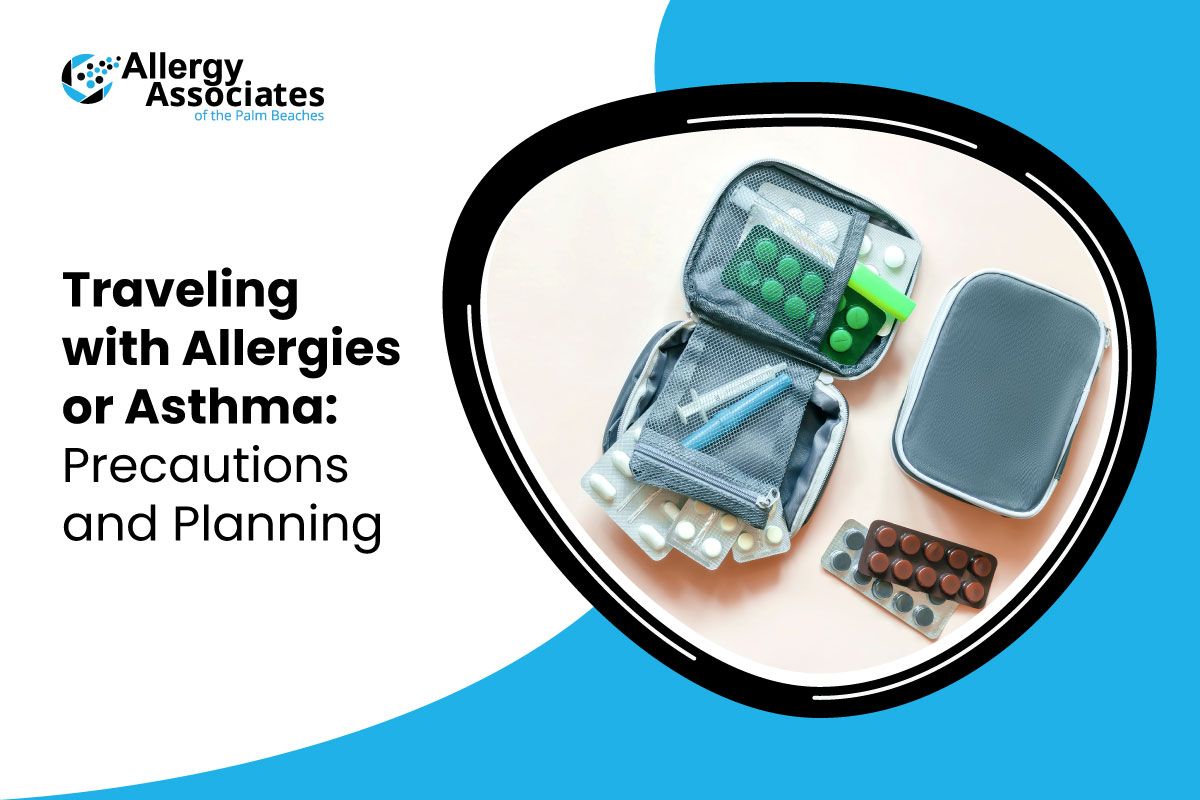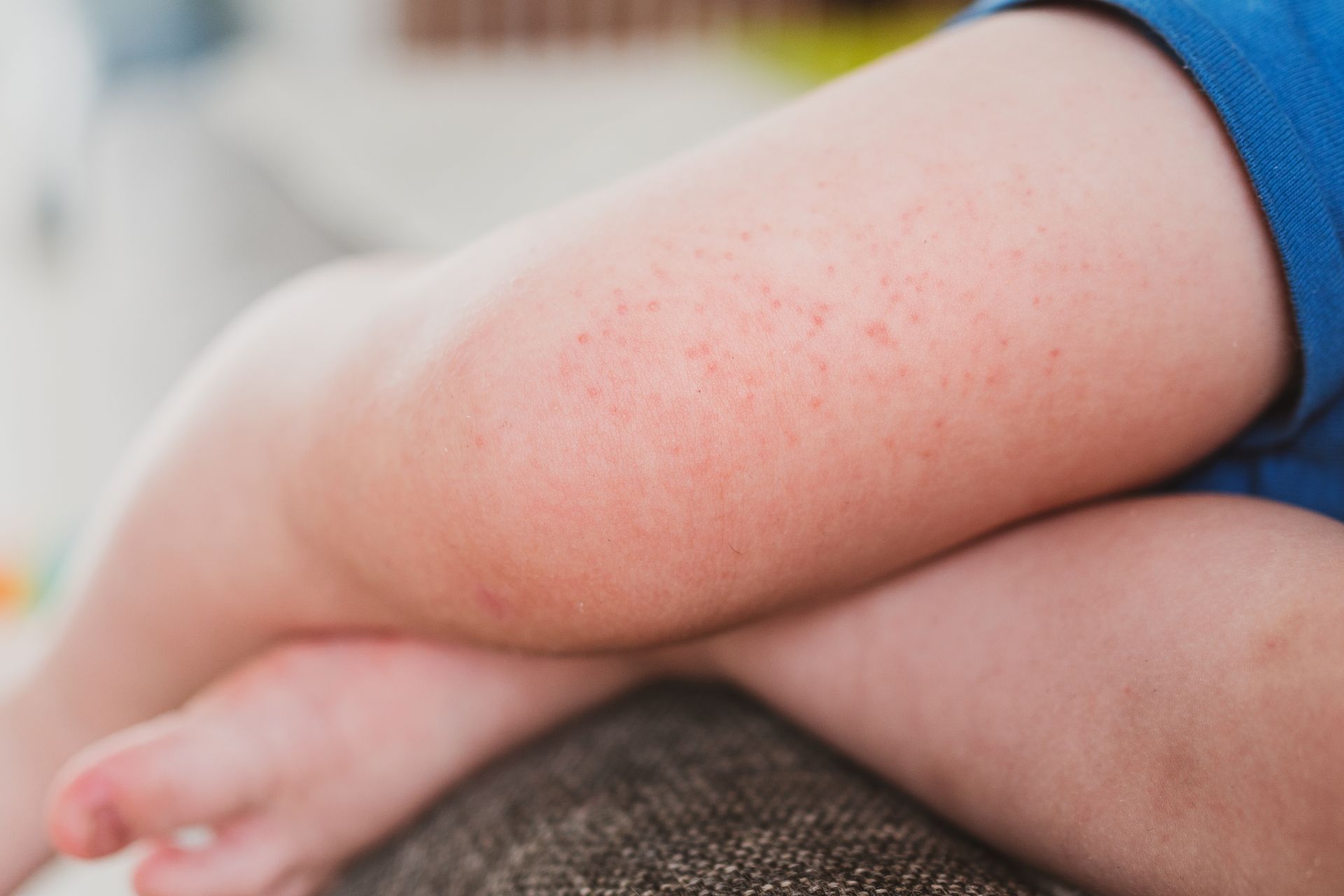
Traveling is a fun and thrilling experience that allows you to discover new places and cultures and create lasting memories. However, if you have allergies or asthma, taking certain precautions and planning your journey is essential to ensure a safe and enjoyable trip.
This article will provide valuable information and practical tips to travel with allergies or asthma without worries.
Understanding Asthma and Allergies
Allergies range from mild to intense and can be triggered by outdoor and indoor substances such as pollen, dust mites, pet dander, or certain foods. When traveling, exposure to unfamiliar allergens can lead to discomfort and potentially severe allergic reactions. Identifying your specific allergens and understanding their impact on your health is crucial to take appropriate measures during your trip.
Asthma is a lifelong respiratory condition defined by inflammation and narrowing of the airways. Traveling with asthma presents unique challenges, including exposure to
environmental triggers, changes in climate, and stress. By understanding these challenges, you can better prepare and manage your asthma symptoms while on the go.
Precautions and Planning with Asthma and Allergies When Traveling
Traveling with asthma or allergies doesn't have to be troublesome. All you have to do is proper preparation. By understanding your triggers, and taking necessary precautions, you can minimize risks and enjoy your trip to the fullest. Below are the best ways to prepare for unexpected asthma attacks or allergies when traveling:
Before Your Trip:
- Consult a Healthcare Professional
Before embarking on your journey, it's advisable to consult with your healthcare professional, such as an allergist or pulmonologist. They can provide personalized advice, review your medication plan, and make necessary adjustments based on your destination and activities planned.
- Research Destinations
Research potential allergens or irritants in your visiting areas when planning a trip. Learn about local weather patterns, seasonal allergies, and the availability of medical facilities.
- Pack Essentials
Ensure you pack all the necessary supplies and medications for your trip. This includes your prescribed medications, inhalers, antihistamines, and emergency medications. An ample supply and carrying them in your carry-on bag will ensure immediate access to them during your journey.
When Choosing Transportation:
- Air Travel Considerations
When flying, inform the airline about your allergies or asthma in advance. Most airlines have policies in place to accommodate passengers with medical conditions. Requesting special meals, avoiding potential allergens, and carrying necessary medications on board can help minimize risks during your flight. You can also bring an asthma travel kit.
- Car Travel Considerations
Ensure the vehicle is clean and free of potential allergens. Keep the windows closed to minimize exposure to pollen or pollution. Consider using a car air purifier or installing an air filter to improve air quality.
- Train or Bus Travel Precautions
When using public transportation, be mindful of potential allergens present in shared spaces. Carry disinfectant wipes to clean your seating area and avoid contact with triggering substances. Choose seats away from smokers or individuals wearing solid fragrances.
When Lodging:
- Choose Allergy-Friendly Accommodations
When selecting accommodations, opt for allergy-friendly hotels or resorts. These establishments often have hypoallergenic rooms, use fragrance-free cleaning products, and have strict protocols to minimize allergens. Look for hotels with certification or reviews that highlight their allergy-friendly practices.
- Ensure Cleanliness and Hygiene
Regardless of where you stay, it's essential to maintain cleanliness and hygiene to reduce exposure to potential allergens. Wipe down surfaces with disinfectant wipes, such as doorknobs and remote controls. Bring your pillow and bedding covers to create a barrier between yourself and potential allergens.
- Request Special Accommodations
Inform the hotel if you require specific accommodations, such as a pet-free room or an allergen-free meal. Most establishments will accommodate special requests to ensure guests' comfort and safety.
When Eating Out:
- Researching Food Options
If you have food allergies, research local cuisines and identify restaurants or food establishments that can accommodate your dietary needs. Read reviews or contact the restaurant to inquire about their allergen policies and cross-contamination prevention measures.
- Communicating Dietary Restrictions
When dining out, clearly communicate your dietary restrictions to the waitstaff and chefs. Use simple and concise language to explain your allergies or intolerances. Ask about ingredients, preparation methods, and potential cross-contamination risks to make informed choices.
- Carrying Emergency Medications
Even with proper planning, allergy or asthma attacks can happen unexpectedly. Always carry your emergency medications, such as epinephrine auto-injectors for severe allergic reactions or a spare inhaler for asthma exacerbations. These can be life-saving in critical situations.
Additional Tips:
- Be Mindful with Outdoor Allergens
If you cherish outdoor activities like hiking or camping, be mindful of potential natural allergens. Research the local flora and fauna, and take appropriate precautions. Consider wearing protective gear, such as long sleeves and pants, and use insect repellents to minimize exposure to allergens and insect bites.
If you have specific triggers, such as pollen or mold, avoid outdoor activities during peak pollen seasons or in areas with high mold concentrations. Opt for indoor attractions or activities when allergen exposure is likely high.
- Expect Weather Changes
Weather changes can trigger asthma symptoms or allergies. Monitor weather forecasts for your destination and pack the appropriate clothing to protect yourself from extreme temperatures or sudden weather shifts. Dress in layers to adapt to shifting weather conditions comfortably.
- Identify Local Medical Facilities
Before you start your journey, identify local medical facilities, hospitals, or clinics at your destination. Knowing where to seek medical assistance in an emergency can provide peace of mind.
Remember to consult with healthcare professionals, carry emergency medications, and stay informed about local medical facilities. Proper precautions allow you to embark on exciting adventures without compromising your health.
FAQs
- Can I travel with allergies or asthma? Yes, you can travel with allergies or asthma. You can enjoy your journey safely with proper planning, precautions, and carrying the necessary medications.
- Should I inform the airlines about my allergies or asthma? It would help to inform the airline about your allergies or asthma. They may have policies in place to accommodate passengers with medical conditions.
- Can I dine out with food allergies? Yes, you can dine out with food allergies. Research restaurants, communicate your dietary restrictions, and ask about allergen policies and cross-contamination prevention measures.
- What should I do if I unexpectedly experience an allergy or asthma attack during my trip? Carry your emergency medications, follow your personalized action plan, seek medical assistance if needed, and contact local authorities or emergency services.
Enjoy Your Journey Without Worrying About Asthma and Allergy
Allergies and asthma are two conditions that are closely linked and often coincide. We understand the challenges with asthma and allergies, especially when traveling. We are here to help you achieve a safe and unforgettable travel experience with our asthma and allergy management services.
If you’re searching for “allergy travel”, “allergy symptoms after flying”, “travel with allergies”, and “pollen vacation”, then you are right where you need to be. Our board-certified allergy doctors specialize in treating and managing allergies and asthma using
evidence-based methods. Contact
Allergy Associates of the Palm Beaches today if you are looking for allergists.
Click
here to book an appointment.
Allergy Associates of the Palm Beaches
Allergy Associates of the Palm Beaches | All Rights Reserved.










